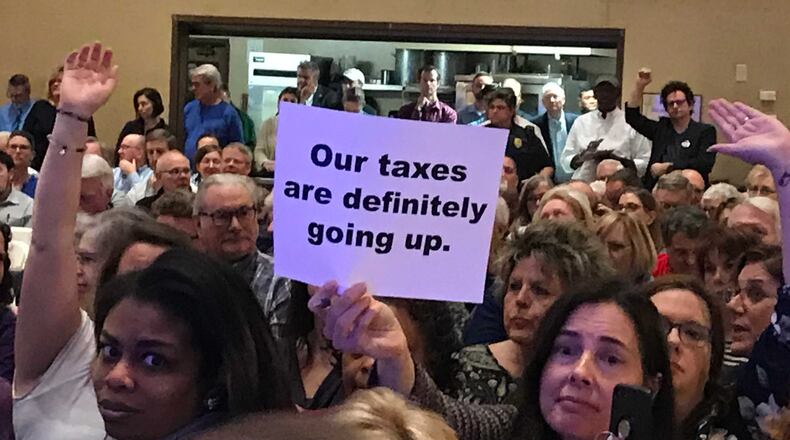For more than three years, a group of east Cobb County residents has been intent on creating a new city to preserve local control over development.
It’s a push supported by State Rep. Matt Dollar (R-Marietta), who has has sponsored a bill to get East Cobb incorporated as a city.
The goal is to get the bill passed by state legislators so the question can be placed on the ballot as a referendum next year.
Cobb County currently makes zoning decisions and provides essential services in the unincorporated region known as east Cobb.
A recent Georgia State University study says the area would be able to provide at least four services and sustain itself as a city without lifting taxes on residents. The study, released Friday, concluded that not only is the cityhood financially feasible, East Cobb would actually operate with more than a $3-million surplus.
The Center for State and Local Finance, a team of researchers housed in GSU’s nationally ranked Andrew Young School of Policy Studies, analyzed the financial prospects of East Cobb standing alone as its own city. Researchers compared East Cobb against metro cities with similar populations, like Brookhaven, Dunwoody, Johns Creek, Marietta and Smyrna.
East Cobb Cityhood, a nonprofit committee of residents that live in the area, presented the feasibility study to the Georgia Legislature on Friday.
The recent findings are an update to a study that served as the basis for Dollar’s first run at cityhood for East Cobb in 2019. That bill never got much traction.
The representative introduced a new version of the bill in March to create a city encompassing 25 square miles of territory that includes about 2,100 businesses and a little more than 50,000 residents.
East Cobb would be centered at the crossroads of Roswell and Johnson Ferry roads, according to a map devised by the cityhood committee. The proposed city would run from Shallowford Road south to the Chattahoochee River and extend from as far west as Murdock Road east to the Cobb County line.
It would cost about $24.7 million to run the city with police, fire, code enforcement and planning and zoning departments. According to the report, East Cobb’s annual revenue stream of $27.7 million would outpace its yearly expenses by nearly $3.1 million.
Public safety — police, fire and E911— represents the heftiest expense East Cobb would face at $14.3 million annually, according to the study.
The proposed city stands to collect $15.7 million in property taxes if it imposes the same tax rate that Cobb County currently levies on property owners. East Cobb would also rake in another $3.3 million in franchise fees, according to the study.
Dollar and the bill’s co-sponsor, Rep. Sharon Cooper (R-Marietta), will join the East Cobb Cityhood committee to review the study and answer questions during a virtual meeting at 5:30 p.m. Wednesday.
East Cobb isn’t alone in its quest for cityhood. Last month, the University of Georgia’s Carl Vinson Institute of Government released a study that said Vinings, a census-designated area just north of the Fulton County line, would be financially stable. In March 2020, the same institute determined Mableton, a populous region in unincorporated South Cobb, would also be able to support itself. Out in west Cobb, State Rep. Ginny Ehrhart is leading a push to form a new city called Lost Mountain by next year.
Credit: Matt Bruce
Credit: Matt Bruce
About the Author
Keep Reading
The Latest
Featured




